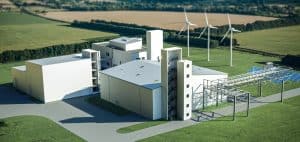
Global chemical giant BASF is going to build a commercial battery-recycling, black-mass plant in Schwarzheide, a town in Brandenburg, eastern Germany.
BASF’s new battery-recycling black-mass plant
The production of black mass, which contains high amounts of lithium, nickel, cobalt, and manganese – the key metals used to produce cathode active materials – is the first step in the battery recycling process.
BASF says that its new plant will strengthen its production of cathode active materials – the main component of lithium-ion batteries – and battery recycling hub in Schwarzheide. It will have an annual processing capacity of 15,000 tons of electric vehicle batteries and production scrap. It will create around 30 new production jobs, and it’s expected to launch in early 2024.
The black mass will then go to BASF’s commercial hydrometallurgical refinery for battery recycling, which will be built in around three years. (Hydrometallurgy refers to the application of aqueous solutions for metal recovery from ores.)
Dr. Peter Schuhmacher, president of the catalysts division at BASF, said:
With this investment in a commercial-scale, battery-recycling, black-mass plant, we take the next step to establish the full battery recycling value chain at BASF. This allows us to optimize the end-to-end recycling process and reduce the CO2 footprint.
The closed loop from end-of-life batteries to [cathode active materials] for new batteries supports our customers along the entire battery value chain, reduces the dependency from mined raw materials, and enables a circular economy.
The company notes that the site is ideal for escalating battery recycling activities due to the presence of many EV makers and cell producers in Central Europe.
